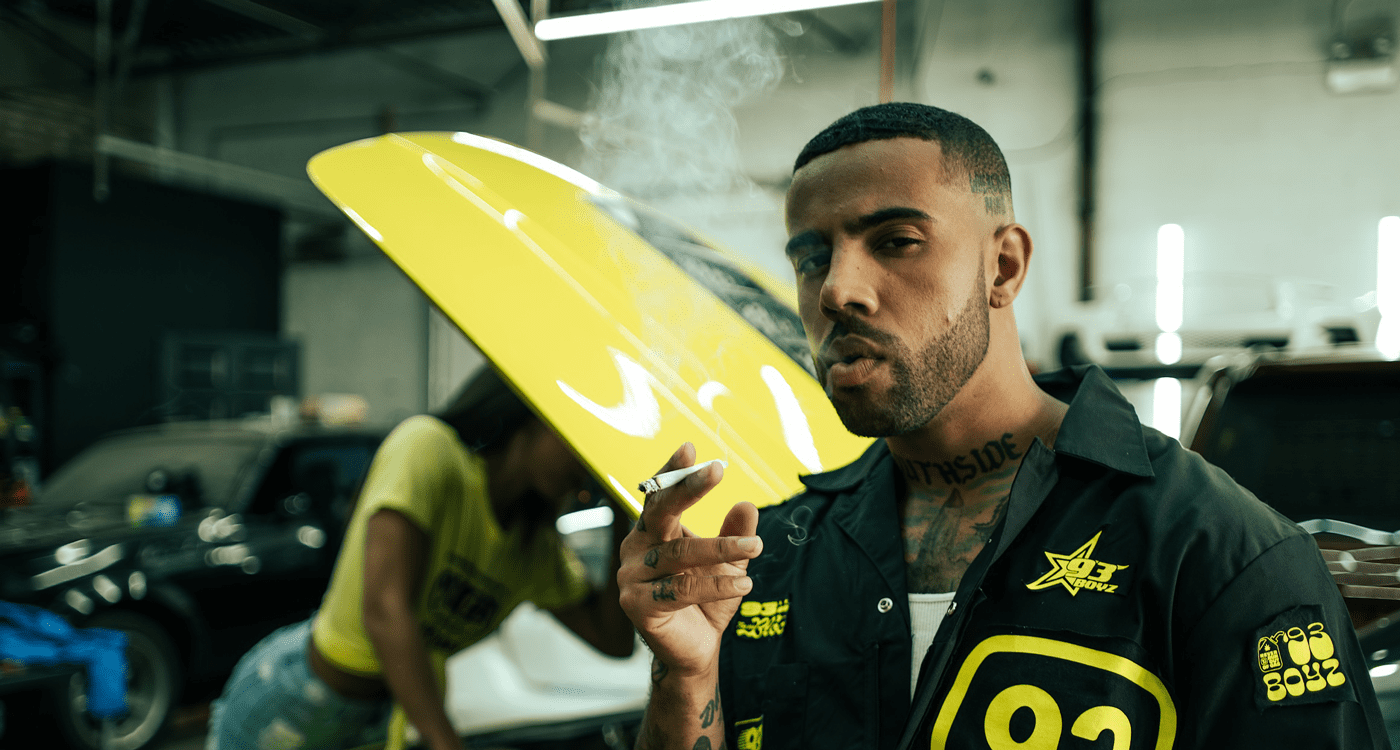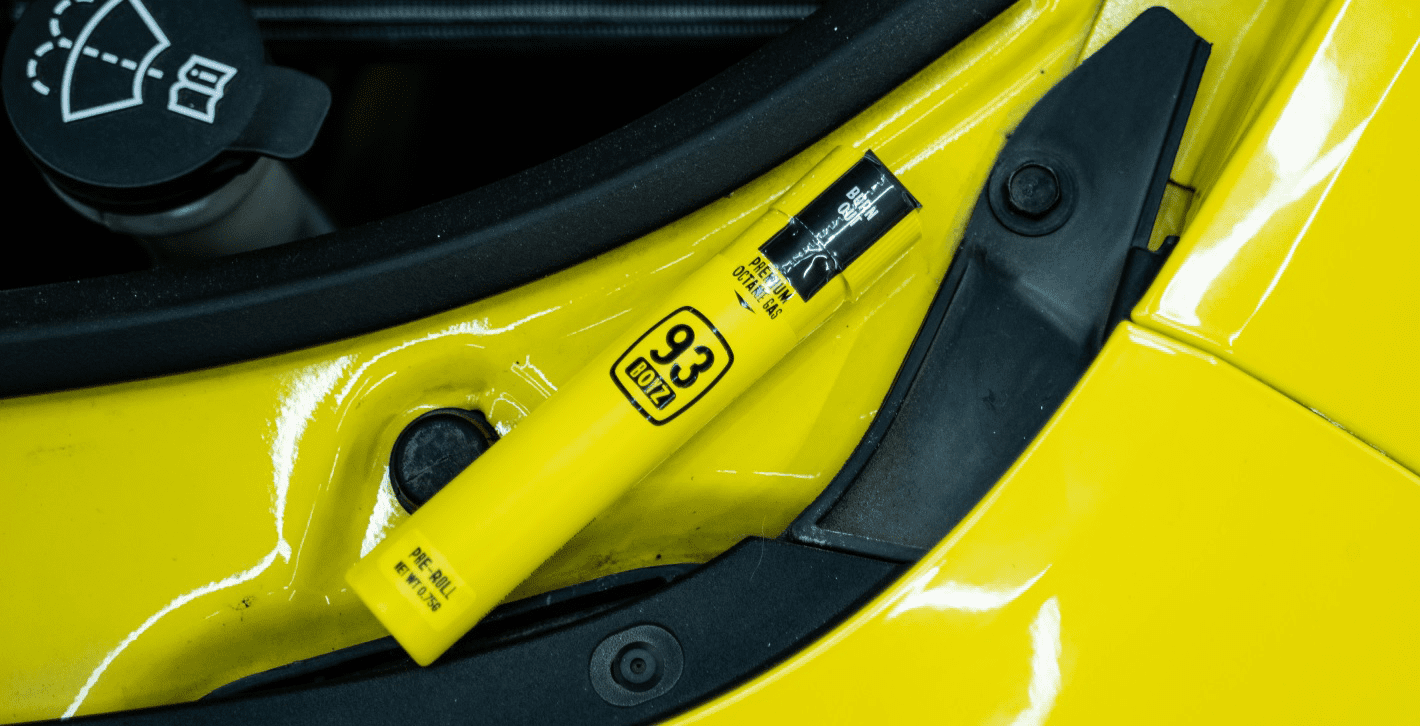At the age of 16, in 2010, rapper Vic Mensa released his debut solo mixtape, Straight Up, and joined the band Kids These Days. He grew up selling weed and mixtapes and is now running the first Black-owned cannabis brand in Illinois with 93 Boyz. He has also unveiled Books Before Bars, a non-profit organization dedicated to providing books to underserved prison libraries. The program is funded through 93 Boyz in partnership with Aeriz, the largest aeroponic cannabis cultivator in the world. Aeriz’s product line includes premium flower, prerolls, and vape cartridges from sativa to indica to custom hybrid blends.

Mensa’s cannabis brand, 93 Boyz, is an equity-focused cannabis company which is the first to be Black-owned and led in the state of Illinois. Their mission is to reinvest in the communities and individuals that have been historically and disproportionately affected by outdated laws, prejudices, and assumptions regarding cannabis consumption. Mensa’s personal community-based non-profit, SaveMoneySaveLife, used proceeds from the brand last year to fill up the gas tanks of more than 200 cars on Chicago’s southside. As a rapper, Mensa’s first solo full-length, The Autobiography, inspired by Malcolm and Alex Haley’s seminal text The Autobiography of Malcolm X, came out in 2017 to critical acclaim and landed at #27 on the Billboard 200. The mixtape earned him an NAACP Image award nomination for Best New Artist. He earned a Grammy nomination as a co-writer on Kanye West’s “All Day.” Mensa put out a series of solo EPs and mixtapes in 2020, 2021, and 2022. He is not afraid to take risks with how he uses his talents, including taking a stand to defund the Los Angeles County Sheriff’s Department. In 2018 he penned an op-ed on gun control for Rolling Stone and tackled the issue of Palestine and racism for TIME magazine. We got to speak with Vic Mensa to learn more.
You’ve been open about your cannabis use. When did you first start using cannabis and what drew you to it?
Cannabis was the first industry I was in as a preteen. Selling weed was my first hustle before I ever made anything of rap. In many different ways and in different points of time in my life, I’ve been involved with cannabis. As the legislation in Illinois changed, it has been a priority of mine to take part in this industry. Coming from a community that has been so impacted by the war on drugs, I felt it was necessary that we are represented in this cannabis industry.
Music and cannabis seem to have a deep historical connection. How has cannabis influenced your creative process when writing or recording music?
A lot of my music has been made smoking, I think it helps to open the spiritual and creative channels and inspires an artist to think and write in different ways.
Did you or do you grow?
No, I have trouble keeping my houseplant alive, but my partner is a grower.
You launched your own cannabis company, 93 Boyz. What inspired you to get into the cannabis business?
As someone with a lifelong experience of anxiety and depression it was amazing to be able to help people facing those and other issues while working with something I love. The war on drugs has had a devastating impact on my community, and yet our representation in the cannabis industry is less than 2%. 93 Boyz is changing that narrative while combining high quality, tastemaker weed with socially conscious initiatives
How did you come up with the name 93 Boyz and what is the significance behind it?
I was born in 1993. My partner in the business was born in 1993 so we’re 93 Boyz.
There’s a racist narrative in cannabis going back to the earliest days with propaganda like Reefer Madness that painted Black and brown people in the worst light and was extremely damaging for decades. It’s so important to be able to change that story and have Black-owned brands succeed. Can you tell me about how that motivates you?
Yeah, the criminalization of plant medicine has had some devastating effects on the Black community in particular. If one examines the history of cannabis in the United States, you’ll quickly learn that it was the association of cannabis with Black people and Mexicans that was hugely influential in it becoming scheduled as an illegal narcotic. And yet as the laws have changed, Black people have been completely excluded from the process. Black ownership in the cannabis industry is little to none. That’s why 93 Boyz being the first black cannabis brand in Chicago is so important. In this country many Black men are still incarcerated for possession of marijuana and are fighting to be set free.
Given your career trajectory and the topics you have tackled in your solo work like The Autobiography, it seems natural that you would move into an advocacy and activist path. But did you see that for yourself at first? If not, how did you find that path towards activism and make it happen?
I think a part of being a conscious, informed human being is naturally being involved in the upliftment of people, so I don’t much see my path as turning towards activism so much as embracing my consciousness.
Tell me about Books Before Bars.
With Books Before Bars, I just started to think about what I can do to bring freedom, how I can actualize freedom, knowing the industry I’m stepping into is capitalizing off a thing that has stolen freedom from so many of us. It became imperative for me to bring freedom to people through this brand. I’ve seen the immense transformative potential and power of literature for incarcerated people. I sent one of my friend’s Huey P. Newton’s Revolutionary Suicide. In Revolutionary Suicide, Huey speaks about how during his incarceration, much of which was spent in solitary confinement, he learned to master his mind and his memories in such a way that he might have been physically incarcerated but he was mentally elsewhere. You know, mentally free. Witnessing that transformative power over and over again in my life is what inspired 93 Boyz’s first equity-focused project. Through this partnership we dedicate a portion of profits to sending the same books that brought transformative experiences to me and my friends, to prison libraries throughout Illinois.
SaveMoneySaveLife used proceeds from the brand last year to fill up the gas tanks of more than 200 cars. What was your intention behind this?
Yeah, we celebrated the launch of 93 Boyz by going to the gas station on the block where I grew up and gave away $10,000 of free gas. At a time when many people are struggling to fill their tank, it felt good to be able to help the community in a real way.
Tell me about Aeriz, the largest aeroponic cannabis cultivator in the world, and your relationship with them.
Aeriz is a great company, great people, and great weed. They are really caring human beings and we have a great relationship. They grow the 93Boyz flower.
What is the feeling like in Illinois on the street now that there are licensed dispensaries and the cannabis trade is not so illicit?
I think a lot of the stigma around cannabis has been removed, less people are smoking in the shadows and in secrecy.
Cannabis legalization seems to be moving forward in many states. How do you think laws and attitudes need to continue changing around cannabis?
I definitely think federal legalization is on the way.
Any new cannabis related projects or partnerships in the works that you can share?
I’m working on a collaboration with Viola and Iverson, and 93 Boyz is rolling out an infused blunt soon


